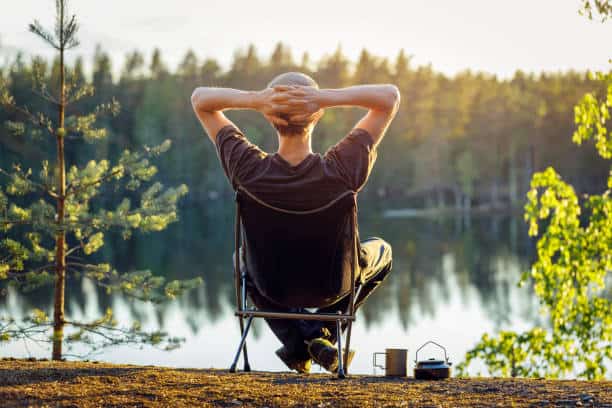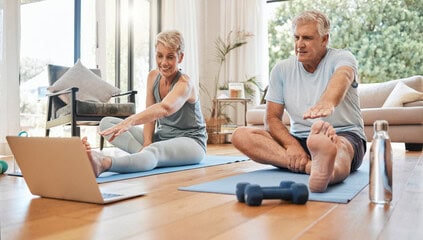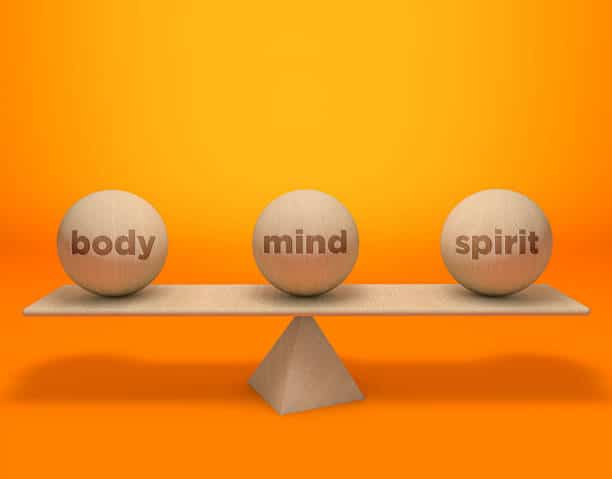Rest: It Does a Body Good

You know what’s funny? I’ve spent over three decades helping people get stronger, faster, and fitter, but the most important advice I give might surprise you. It’s not about crushing yourself in the gym seven days a week or pushing through pain like some kind of warrior. It’s about rest. https://www.rushwalter.com/your-body-your-temple/
Yeah, I said it. Rest. The thing that most people think is for lazy folks or weaklings. The truth is, if you’re not prioritizing recovery, you’re basically spinning your wheels and wondering why you’re not getting anywhere.
I learned this lesson the hard way, like most stubborn lessons in life. About fifteen years into my career, I was working with clients all day, delivering exercise equipment in the evenings, and trying to maintain my own training schedule. I thought sleep was something you did when you ran out of productive things to do. Boy, was I wrong.
The Night Everything Changed
I’ll never forget this one particular week where I averaged maybe four hours of sleep per night. I was delivering a commercial-grade treadmill setup on a Thursday, and my back just gave out. Not from the weight of the machine, but from bending over to plug it in. A simple movement that I’d done thousands of times before.
Lying there on my customer’s floor, I had this moment of clarity. My body was basically staging a revolt against my terrible rest habits. That’s when I realized that rest isn’t the opposite of productivity – it’s what makes productivity possible.
The human body is designed to work in cycles, and we see this pattern throughout Scripture. Even God rested on the seventh day, not because He was tired, but because rest is built into the very fabric of creation. https://www.rushwalter.com/biblical-sabbath-rest-why-recovery-days-are-essential-after-50/ Genesis 2:2-3 tells us, “By the seventh day God had finished the work he had been doing; so on the seventh day he rested from all his work.”
What Actually Happens When You Sleep
Most people think sleep is just downtime, like your body is shut off for eight hours. That couldn’t be further from the truth. Sleep is when your body does its most important repair and maintenance work.
During deep sleep, your body releases growth hormone, which is responsible for muscle repair and development. Your brain literally cleans itself, flushing out toxins and waste products that accumulate during the day. Your immune system gets recharged, and your hormones get balanced.
I had this client who was doing everything right – eating clean, training consistently, following her program to the letter – but she couldn’t lose weight or build muscle. When we dug into her sleep habits, she was getting maybe five hours a night and wondering why her body wasn’t responding.
Within three weeks of prioritizing 7-8 hours of quality sleep, her energy levels shot up, her strength increased, and she started seeing the results she’d been working toward for months. It was like someone had flipped a switch.
The Stress Hormone Connection
Here’s something that really opened my eyes about the importance of rest. When you don’t get adequate sleep, your cortisol levels stay elevated throughout the day. Cortisol is your stress hormone, and while it serves important functions, chronically high levels are absolutely devastating to your health and fitness goals.
High cortisol promotes fat storage, especially around your midsection. It breaks down muscle tissue, suppresses your immune system, and interferes with insulin sensitivity. Basically, it undoes all the good work you’re doing in the gym and kitchen.
I used to think I could power through on minimal sleep and just drink more coffee. What I didn’t realize was that I was essentially fighting against my own biology. It’s like trying to drive with the parking brake on – you might move forward, but you’re working way harder than you need to.
Quality vs. Quantity
Now, it’s not just about logging eight hours in bed. Sleep quality matters just as much as sleep quantity. You can spend nine hours tossing and turning and wake up feeling worse than if you’d gotten six hours of deep, restorative sleep.
Your bedroom environment plays a huge role in sleep quality. Keep it cool – around 65-68 degrees is optimal for most people. Make it as dark as possible. I invested in blackout curtains about ten years ago, and it made a noticeable difference in how rested I felt in the morning.
Noise is another factor that people underestimate. Even if sounds don’t fully wake you up, they can still disrupt your sleep cycles. A white noise machine or earplugs can work wonders. I learned this during my equipment delivery days when I was staying in hotels with paper-thin walls.
The Pre-Sleep Routine That Changed Everything
Creating a consistent pre-sleep routine has been a game-changer for both me and my online clients. Your body thrives on routine, and having a wind-down period signals to your brain that it’s time to start shutting down for the night.
About an hour before bed, I dim the lights throughout the house. Bright lights, especially the blue light from phones and TV screens, mess with your melatonin production. Your brain thinks it’s still daytime and stays alert when it should be preparing for sleep.
I also put my phone in another room. I know, I know – it’s tough at first. But the constant notifications and the temptation to scroll through social media or check emails is sleep poison. If you use your phone as an alarm, invest in a real alarm clock. Your sleep is worth the twenty bucks. I invested in an inexpensive Timex watch which has several alarm settings and now I gladly leave my phone in the living room.
The Recovery Between Workouts
Rest isn’t just about nighttime sleep though. Recovery between workouts is just as crucial for making progress. Your muscles don’t actually grow during your workout – they grow during the recovery period afterward.
When you lift weights or do intense cardio, you’re creating microscopic tears in your muscle fibers. It’s during the rest period that your body repairs those tears and builds them back stronger. Without adequate recovery, you’re just breaking yourself down without giving your body a chance to build back up.
I used to think that more was always better when it came to training. If three workouts per week were good, then six must be twice as good, right? Wrong. I was overtraining and actually getting weaker and more injury-prone.
Active Recovery vs. Complete Rest
Here’s where things get nuanced. Rest doesn’t always mean sitting on the couch doing nothing. Sometimes active recovery – light movement that promotes blood flow without adding stress – is exactly what your body needs.
A gentle walk, some light stretching, or easy natural movement exercises can actually speed up recovery by increasing circulation and helping flush out metabolic waste products from your muscles. https://www.rushwalter.com/natural-movement-strength-training-for-complete-beginners-2/ The key is keeping the intensity low enough that you’re not adding to your stress load.
Swimming is fantastic for active recovery if you have access to a pool. The water supports your body weight while providing gentle resistance and promoting blood flow. I’ve recommended pool walking to countless clients dealing with joint issues or looking for low-impact recovery activities. And my go to is always going to be riding my bicycle for active recovery exercise.
The Mental Health Benefits
What really drives me nuts is when people act like rest is somehow selfish or unproductive. The mental health benefits of adequate rest are just as important as the physical benefits, maybe more so.
When you’re well-rested, your mood is more stable, your stress tolerance is higher, and your decision-making is sharper. You’re more patient with your family, more focused at work, and generally just a better version of yourself.
Sleep deprivation literally impacts your brain’s ability to function properly. The prefrontal cortex, which is responsible for executive decision-making, basically goes offline when you’re running on too little sleep. That’s why everything feels harder and more overwhelming when you’re tired.
Napping: The Secret Weapon
Now, I’m not suggesting you sleep your life away, but strategic napping can be incredibly beneficial, especially if you’re not getting enough nighttime sleep or you’re going through a particularly stressful period.
A 20-30 minute nap in the early afternoon can boost alertness, improve mood, and enhance performance without interfering with nighttime sleep. The key is keeping it short enough that you don’t enter deep sleep and wake up groggy.
I discovered the power of napping during my busiest years when I was juggling training clients and equipment deliveries. A quick 20-minute power nap between afternoon sessions made me feel like I’d recharged my batteries.
The Technology Trap
One of the biggest obstacles to quality rest in our modern world is technology. We’re constantly connected, constantly stimulated, and our brains never get a chance to truly wind down.
The blue light from screens suppresses melatonin production, but it’s not just the light – it’s the content too. Scrolling through social media or watching intense TV shows keeps your mind active and engaged when it should be preparing for sleep.
I started implementing a “digital sunset” in my house. All screens go off one hour before bedtime. It was tough at first, but now I actually look forward to that quiet time for reading, light stretching, or just thinking.
Working with Your Natural Rhythms
Everyone has natural circadian rhythms – your body’s internal clock that regulates sleep-wake cycles. Some people are naturally early birds, others are night owls, and most fall somewhere in between.
Fighting against your natural rhythm is like swimming upstream. If you’re naturally a night person but forcing yourself to go to bed at 9 PM, you’re probably just lying there frustrated. Work with your body, not against it, whenever possible.
That said, consistency is key. Going to bed and waking up at roughly the same time every day, even on weekends, helps regulate your internal clock and improves sleep quality over time.
The Recovery Tools That Actually Work
Over the years, I’ve tried every recovery gadget and technique under the sun. Some are helpful, others are just expensive placebos. Here’s what actually makes a difference in my experience.
A good mattress and pillows are non-negotiable. You spend roughly a third of your life in bed, so invest accordingly. I’m not saying you need to spend a fortune, but don’t try to get by with a mattress that’s seen better days or pillows that provide no support.
Magnesium supplementation has been helpful for many of my clients who struggle with sleep quality. It’s a natural muscle relaxant and can help calm the nervous system. Always check with your healthcare provider before adding supplements, but magnesium is generally well-tolerated.
Creating Your Rest Protocol
If you’re serious about improving your rest and recovery, you need to treat it like any other aspect of your health program. That means being intentional and consistent about it.
Start by tracking your current sleep patterns for a week. When do you go to bed? When do you wake up? How do you feel in the morning? Most people are shocked when they actually see their sleep data written down.
Set a target bedtime and work backwards. If you need to wake up at 6 AM and want eight hours of sleep, you need to be asleep by 10 PM. That means starting your wind-down routine by 9 PM at the latest.
The Role of Professional Guidance
This is where working with someone who understands the complete picture can make a huge difference. When I work with online clients, recovery planning is always part of our overall strategy. We look at their training schedule, stress levels, work demands, and family commitments to create a realistic rest and recovery plan.
Everyone’s situation is different. A single parent working two jobs has different constraints than a college student or retiree. The key is finding strategies that work within your real-life circumstances, not some ideal scenario.
I’ve been able to help people across the country optimize their rest and recovery through virtual coaching. Sometimes it’s as simple as adjusting their training schedule to allow for more recovery time, other times it’s helping them create better sleep environments or routines.
The Biblical Foundation for Rest
Scripture has a lot to say about the importance of rest. Ecclesiastes 3:1 reminds us that “To every thing there is a season, and a time to every purpose under the heaven.” That includes a time for work and a time for rest.
Jesus himself modeled the importance of rest and retreat. Mark 6:31 tells us that Jesus said to his disciples, “Come ye yourselves apart into a desert place, and rest a while.” Even the Son of God recognized the need for regular rest and recovery.
Making Rest a Priority
Here’s the bottom line – rest isn’t laziness, it’s wisdom. It’s not wasted time, it’s invested time. When you prioritize recovery, everything else in your life gets better. Your workouts are more effective, your energy levels are higher, your mood is more stable, and your results come faster.
If you’re struggling to make progress despite doing everything else right, take a hard look at your rest and recovery habits. You might find that the missing piece isn’t working harder – it’s resting better.
Remember, your body does its best work when you’re not asking it to work at all. That’s not a contradiction, that’s just good biology. And after thirty-plus years of helping people transform their health and fitness, I can tell you that the people who succeed long-term are the ones who understand this fundamental truth.
Rest well, train smart, and watch your body thank you for finally giving it what it needs to thrive.
Thanks for reading this fitness blog. I hope you enjoy a healthy day, Walter






